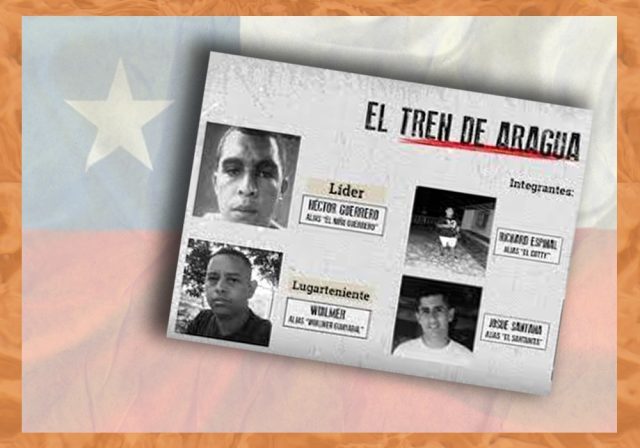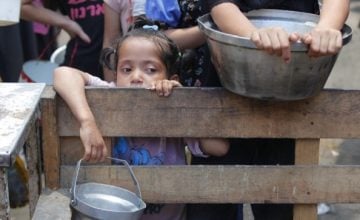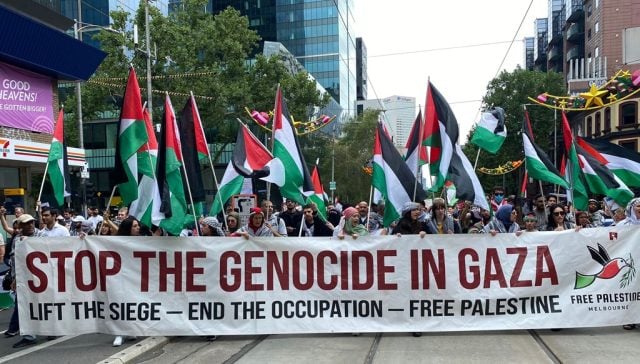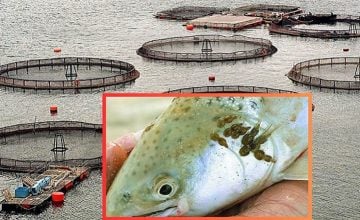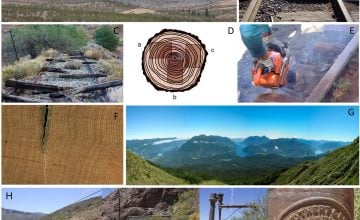Criminal networks operating in different countries in Latin America and the Caribbean have managed to become transnational organizations with a permanent presence of criminal cells that actively operate throughout the region and have influence from the South American Patagonia to the heart of the United States.
These criminal groups have taken advantage, in recent years, of the massive migratory flow that has occurred, in an irregular and uncontrolled manner, in different countries of the region affected by poverty, inequality, economic crisis, insecurity, and the deterioration of the quality of life.
In this way, criminal gangs have opened a network of illegal roads that they use as a business to enable the flow of migrants in the absence of the vital and needed presence and coordination of national, regional and local governments. Because of this, they have managed to open ‘border spaces’ that communicate fluidly to the North and South of the continent, while they take root in the different countries where they manage to settle.
In addition, the migratory wave, which on the one hand seeks to reach the US and also has a significant flow to South American countries, is used by organized crime as an opportunity to expand outside their countries and settle in others, obtaining more profit, influence and permanence.The expansion of criminal groups
It is not a single criminal group but different criminal organizations that have managed to expand ‘their borders’. Mexican drug trafficking cartels such as Sinaloa, Jalisco Nueva Generación, among others, have managed to establish themselves in Central America, Colombia, Venezuela and Ecuador, a country that in recent weeks has seen the crime rate in the Pacific coastal provinces increase alarmingly, especially in Colombian and Peruvian border regions.
In addition, the insecurity situation extends to prisons, which are used by criminal gangs as centers of operations. All this has caused the government of Guillermo Lasso in Ecuador – for example – to decree states of exception in different regions to try to fight crime, but the results do not seem to go beyond arrests and seizures, that is, they do not go to the root of the problem.
The same situation is repeated with criminal organizations that operate in Colombia, Venezuela, El Salvador, Guatemala, Honduras, and Haiti, among other countries. Another example is what is happening from Colombia, where criminal groups such as the Clan del Golfo, Los Urabeños, Los Rastrojos, among others, have expanded to Panama, Ecuador, Peru, and Venezuela.
In the so-called Central American «Northern Triangle», which includes El Salvador, Guatemala and Honduras, operates the Maras Salvatruchas, also known as MS-13, which has active cells in Central America and the US.
Meanwhile, in Venezuela one of the criminal organizations created a few years ago known as ‘El Tren de Aragua’ has appeared. A criminal group that despite its short history has managed to expand to the entire continent, including the US and the Lake District in Chile, through cells that have used the migratory flow to reach corners that would have been inhospitable and unthinkable for a criminal gang that was born inside a prison in a region of central Venezuela.Vulnerability of migrants favors criminals
Jeremy McDermott, founder and co-director of InSight Crime, a think-tank based in Medellín, Colombia and Washington, which studies organized crime in Latin America and the Caribbean, recently explained during the 12th Conference of the Parties to the United Nations Convention Against Transnational Organized Crime (UNTOC) held in Vienna, Austria, that criminal gangs take advantage of the vulnerabilities of migrants to ‘send’ criminals, recruit them and also smuggle and commit crimes.
McDermott explained that the relationship between organized crime and migration in Latin America and the Caribbean is based on different situations that governments should address, such as the lack of unified policies to safely control migration, the proper identification of the people who mobilize and, above all, offer guarantees to the undocumented and migrants who move through the region.
In this sense, he criticizes that in the region, for example, the undocumented are punished and they are not given due attention to guarantee their full rights in the countries where they arrive. This reality is taken advantage of by criminal groups to attract new members for their organizations, who, given the desperation and vulnerability of the people, offer them salaries in exchange for setting up criminal cells to carry out crimes such as extortion, which gives the gangs a secure support, and that, later, transcends to kidnappings, death threats, murders, sexual abuse, prostitution networks, among other diversity of crimes, which can even reach within the State, where they are related to police, migration and identification officers, a guarantee of impunity and permanence.
For example – says McDermott – these groups prefer to recruit people of their own nationalities, because it guarantees them control over those they recruit, many of whom are forced to work under threat of death against their relatives. In addition, the codes between the members of the same criminal organization give them a certain guarantee to maintain active cells with a permanent presence in other countries, and one of the best examples is the Mara Salvatrucha, the Italian mafia, among other criminal groups that are dedicated tp drug trafficking, human trafficking, prostitution networks, smuggling of illegal merchandise, illegal mining, among others.
The influence of criminal groups such as the Tren de Aragua, Los Urabenos and the Clan del Golfo in South America – for example – has made it possible for the so-called «Tapón del Darién«, a wooded area that is difficult to access, with steep mountains that exceed the 2,000 meters high, and an extremely adverse climate, become a zone for the transit of migrants where a decade ago only some 100,000 people came through and in the last month some 50,000 have already crossed it and more than 200,000 so far during 2022, due to the opening of trails and roads controlled by criminals, and where migrants are exposed to sexual abuse, robbery and other types of violations of their integrity.
At that point (Tapón del Darién), that joins South America with Central America, organized crime managed to set up a business for human trafficking, which generates great dividends for criminal groups, to the point of installing resting points for migrants within the immense tropical jungle. motorized networks that transport travelers, and less difficult roads to travel. They even offer packages for people with more money to make the journey without so much difficulty and in better conditions.Increase in violence and in the number of criminals
The situation has generated an increase in crime throughout the region, even in countries where a few years ago citizens’ sense of security when traveling on the streets was high. No country in the region has failed to be impacted by both the flow of migrants and the substantial increase in crime.
It also shows an increase in crime in countries where before there were no high crime figures, let alone lethal violence. However, beyond targeting the migrant, one must look at the authorities and governments that do not guarantee the well-being of the people who arrive looking for a better quality of life, because by not giving them basic guarantees such as documentation, their work options are limited and consequently this makes it more difficult to survive in a new country.
This vulnerability is taken advantage of by organized crime to capture undocumented people, many of them victims of xenophobia, who reach the point of making the decision to enter the criminal world in order to survive, because it is the only alternative they have in the middle of a totally adverse panorama and as a way to overcome the conditions of indigence they find themselves in.
For example, in the case of Venezuela, which according to UN figures counts more than 6 million migrants who have left their country due to various circumstances such as insecurity, economic and political crisis, have a particular behavior and that is that the majority of the people that have gone abroad, have settled in South American countries such as Colombia, Peru, Ecuador, Chile, Brazil, Bolivia and Argentina, for the most part.
In that same order, the influence of the Tren de Aragua has spread in those countries and they have set up operations and recruitment centers in those countries. Chile and Peru have been one of the most affected by the presence of the criminal group, which has more than 2,700 members, especially due to the increase in the numbers of criminal violence, such as homicides, hit men, kidnappings and extortion.
Security crisis in Chile
In the specific case of Chile, during the first half of 2022, the homicide figures shot up by 28.7% compared to the same period of the previous year, reaching a total of 413, according to figures from the Chilean Investigative Police ( PDI). This has caused the country to be involved in what is already classified as the worst security crisis experienced in three decades, which also causes widespread fear in the population.
Thus, the violence on the rise in the last two years in Chile, although its rates continue to lag behind those of other Latin American countries, has become the main citizen concern, to the point that people have to change their life routines to avoid being victims of crime.
The crisis not only affects ordinary citizens, who are victims of robberies, thefts, murders, extortions, express kidnappings, but also Chilean criminals who have seen how life and security dynamics have changed inside prisons, due to the fact that the entry of highly dangerous criminals who are detained by the authorities and belonging to the Tren de Aragua impose their law in prisons, as is the case in Peru, Ecuador and other countries.
Another element is that the security crisis has seen an increase in the types of crimes and in turn, the violence linked to criminality. Severed heads placed in public places, dismembered bodies abandoned in bags or garbage, murders recorded on video and sent to extorted merchants so that they pay what organized crime demands in exchange for doing nothing to them, death threats, among other actions, have increased the feeling of insecurity in the country, also causing Chileans to decide to emigrate or move to other cities.
The situation that worsened during the government of Sebastián Piñera, who severed relations with Venezuela, a country with which a bilateral security and documentation policy could be proposed at the time to review criminal records of migrants and even practice regular extraditions, now seems to surpass the administration of Gabriel Boric, which has not yet finished taking the step of approaching Caracas to establish a democratic solution to diplomatic relations that would serve to address the security emergency.Priority: Restore relations with Venezuela
On this point, the former senator from Biobío, Alejandro Navarro, has asked Boric to approach Venezuela to establish joint cooperation with the Government of Nicolás Maduro, so that the situation can be addressed with the urgency it requires, especially since the tentacles of the Tren de Aragua (Aragua Train) already reach the Los Lagos Region, including a key city like Puerto Montt.
“This situation forces the Government of Chile to reestablish formal diplomatic relations with Venezuela in order to promote the work and joint cooperation of the police of both countries urgently. Not doing so is giving crime an advantage», said the experienced former senator Navarro, in a clear call to build bridges between Boric and Maduro, who has recently held meetings that were unthinkable until recently, such as the one he held with the president of France, Emmanuel Macron, at COP 27.
The regional security situation requires decision-making and empathy between regional governments. The best example has been the rapprochement and renewal of relations between Colombia and Venezuela, where presidents Gustavo Petro and Maduro have reestablished ties and have opened the binational border that was closed for seven years and have prepared to attack the criminal gangs that operate on the border, among them the Tren de Aragua, which also generates violence and crime within Venezuela, especially given the growing economic dynamics that the country is experiencing after leaving behind the hyperinflationary process and generating a de facto dollarization.
The impact of these criminal organizations even affects Caribbean countries such as Trinidad and Tobago, the Dominican Republic, among others. For this reason, the director of InSight Crime warns that the situation in South America requires regional cooperation from governments, because the routes controlled by the Tren de Aragua cross the entire continent and its influence has a large impact on the countries of the Andean Cordillera, because criminals move back and forth between all the countries in the region and take advantage of the corruption that permeates public institutions, State security forces, and local and regional governments.
Is there a solution?
For McDermott, it is possible to solve the problem of regional insecurity if governments directly address the migration issue and give guarantees to migrants, as this would immediately bring down the business created by criminal gangs around migration.
To do this, governments must establish social programs, ensure economic development, job creation and growth, which would offer and allow migrants opportunities for a dignified and legal life wherever they arrive.
The best case – he said – is that of Venezuela and Colombia with the opening of borders after seven years. «That immediately weakened organized crime and it is good news», he said, because it dismantled the illegal routes that people used and paid criminals to go through paths controlled by them.
As for the documentation, McDermott points out that if governments give migrants guarantees and documentation, people would feel safe to mobilize and would also be able to report irregularities and crimes committed by organized crime in the region, which would help the public force face these problems, capture the criminals and dismantle their networks of influence.
The collaboration of the governments would avoid situations such as human trafficking, and the region’s police would manage a centralized data with wanted criminals and verifiable criminal record data. In addition, the documentation of migrants would allow certifying precise entry and exit data, and residence time in each country, said McDermott.The ‘go ahead’ against criminals and Boric’s decision
In the case of Chile, it seems that the issue, in addition to transcending the impact on the citizenry, also points to a strategic and political move that the Boric government must make urgently. Talking with Maduro can become a step forward that demonstrates his democratic will, his belief in the institutions and it would pave the way for true regional integration beyond political sympathies.
Reestablishing relations with Venezuela, as Petro, Macron, and other regional leaders who, until recently had broken relations with Caracas, have already done, could be the step for the Chilean leader to emancipate himself with a new voice that is committed to deepening democracy in the region, reduce inequalities, poverty and improve the quality of life.
In this sense, the fight against transnational criminal gangs should also focus, as Petro and the former president of Colombia, Juan Manuel Santos have said, on changing the failed strategy of the fight against drugs and going after the real bosses of international drug trafficking, jointly, with cooperation between States. In addition, Boric’s decision would help not jeopardize the Visa Waiver program with the US that Chile currently has for business trips, tourism and transit in electronic passports.
A vivid example is the recent achievement by various countries of the European Union and the United Arab Emirates, which, through Europol, managed to dismantle the so-called cocaine «supercartel» that acted as an international organization. In fact, several regional governments have already established cooperation agreements between Europe and Latin America to attack these problems.
In this sense, it becomes more important that Boric get closer to his counterpart Nicolás Maduro, because otherwise he could be left behind in the regional agenda, especially given the imminent arrival of Lula to the Presidency of Brazil and the rapprochements that even the US and the European Union have with the Venezuelan president, and even the Argentine president himself, Alberto Fernández, who also proclaims and defends a more prosperous rapprochement between the regional leaders.
A step by the Chilean president could turn it into an example of institutionality and civility, leave behind the differences inherited by the actions imposed by the old Piñera administration, and open new horizons and even potential economic agreements with Venezuela, which is open to international investment, Latin American integration and the resurgence of a new Union of South American Nations (Unasur).
Will Boric be willing to do it?
